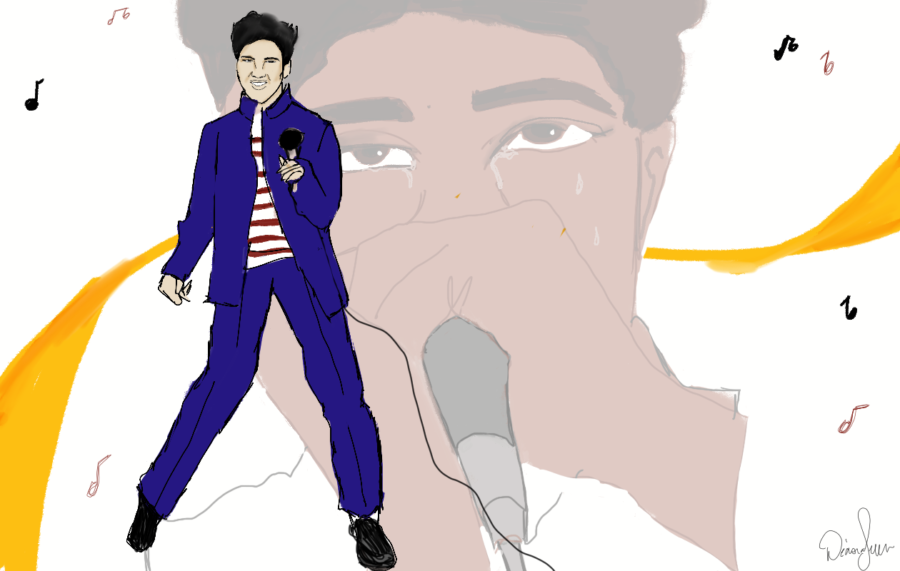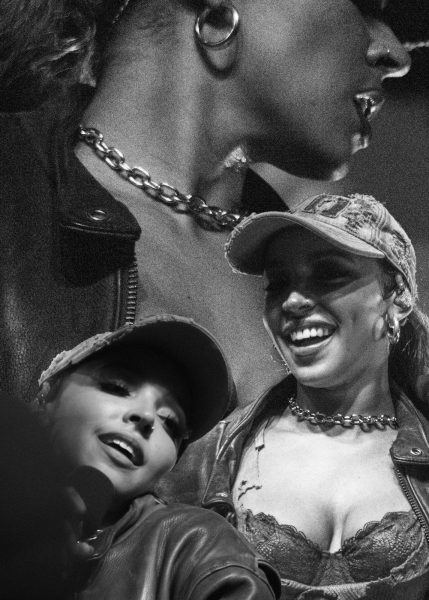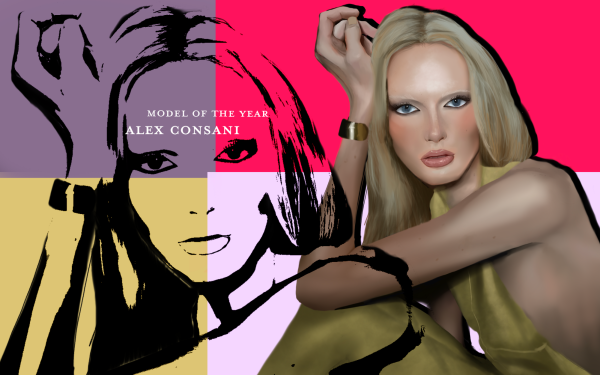should the ‘king of rock’ be dethroned?
Elvis Presley is a name recognized by multiple generations. Many were either fans of him, grew up around his music or are learning about him through the popularity of the hit movie “Elvis” starring Austin Butler. Following the release of the film and the increasing popularity of Presley’s music among a new generation, many are asking questions about the ethics of Presley’s origin in the music industry.
The film follows Presley’s early life all the way up until the moment of his untimely death. In the beginning, director Baz Luhrmann highlights the fact that Presley attended Black church services and was extremely moved and inspired by gospel music in the South. Throughout the movie, the friendship between Presley and B.B. King is highlighted, but through that portrayal, some have claimed the movie exaggerated Presley’s actual involvement in the Civil Rights movement and affiliation with the Black community in general.
It is undeniable that Presley grew up around Black culture and was bound to be influenced by his surroundings, but the question lies within the fact of whether or not he should have received the praise that he did for things he did not create himself. There were many Black artists at the time doing exactly what Presley was doing and they were attacked and scrutinized, so for Presley to be referred to as “revolutionary” does a disservice to all of the Black artists who worked just as hard, if not harder, to achieve the same goals as Presley.
In 1994, Ray Charles did an interview with Bob Costas for NBC where he talked about his stance on Presley being referred to as “the king” and his music. “He was doing our kind of music,” Charles said during the interview. “So what the hell am I supposed to get so excited about?” Many people have this same attitude towards Presley’s work, especially due to the fact he has stolen songs directly from artists like Arthur “Big Boy” Crudup and Big Mama Thorton.
Although, there are some Presley fans who see this topic from an altering perspective. In an interview with Caitlin Hall, a Kent State fashion merchandising student who loves all things Elvis, she explains her view on Presley’s origin and his music.
“I think Elvis acknowledged the Black community in some ways, but I do see the side of the claims that he could’ve done more and I agree,” Hall said. “I think it’s a hard statement to say he ‘stole’ the music completely, but I think he has such a connection to it and wanted to express that sound. I do think that songs like ‘Hound Dog’, ‘That’s All Right’ and many more, from acclaimed Black artists like Big Boy Crudup and Big Mama Thorton needed to have more credit from him and everyone that wanted him to sing the song, and that credit to the originators of those such songs I think still needs room for full recognition today.”
Hall also highlighted a press conference where Presley acknowledges his inspiration from Black artists.
“Some things to highlight in terms of his connections with the Black community is during his press conference after ‘68 Comeback Special he brought out artist Fats Domino, and gave him recognition when someone called Elvis the “King of Rock and Roll” he told and introduced reporters to Fats Domino, and told them that he was the real king,” Hall said. “Elvis said in an interview, ‘Let’s face it: I can’t sing it like Fats Domino can. I know that. But I always liked that kind of music. I used to go to colored churches when I was a kid – like Rev. Brewster’s church (Rev. W. Herbert Brewster of East Trigg Ave. Baptist Church in Memphis).’”
All facts considered, Elvis Presley’s career is largely based on the works of Black artists and the community as a whole. Whether or not Presley had ill intentions will always be up for interpretation, but that does not take away from the fact that there have been many instances where Presley has not adequately credited Black artists.
Support Student Media
Hi! I’m Catie Pusateri, A Magazine’s editor-in-chief. My staff and I are committed to bringing you the most important and entertaining news from the realms of fashion, beauty and culture. We are full-time students and hard-working journalists. While we get support from the student media fee and earned revenue such as advertising, both of those continue to decline. Your generous gift of any amount will help enhance our student experience as we grow into working professionals. Please go here to donate to A Magazine.







